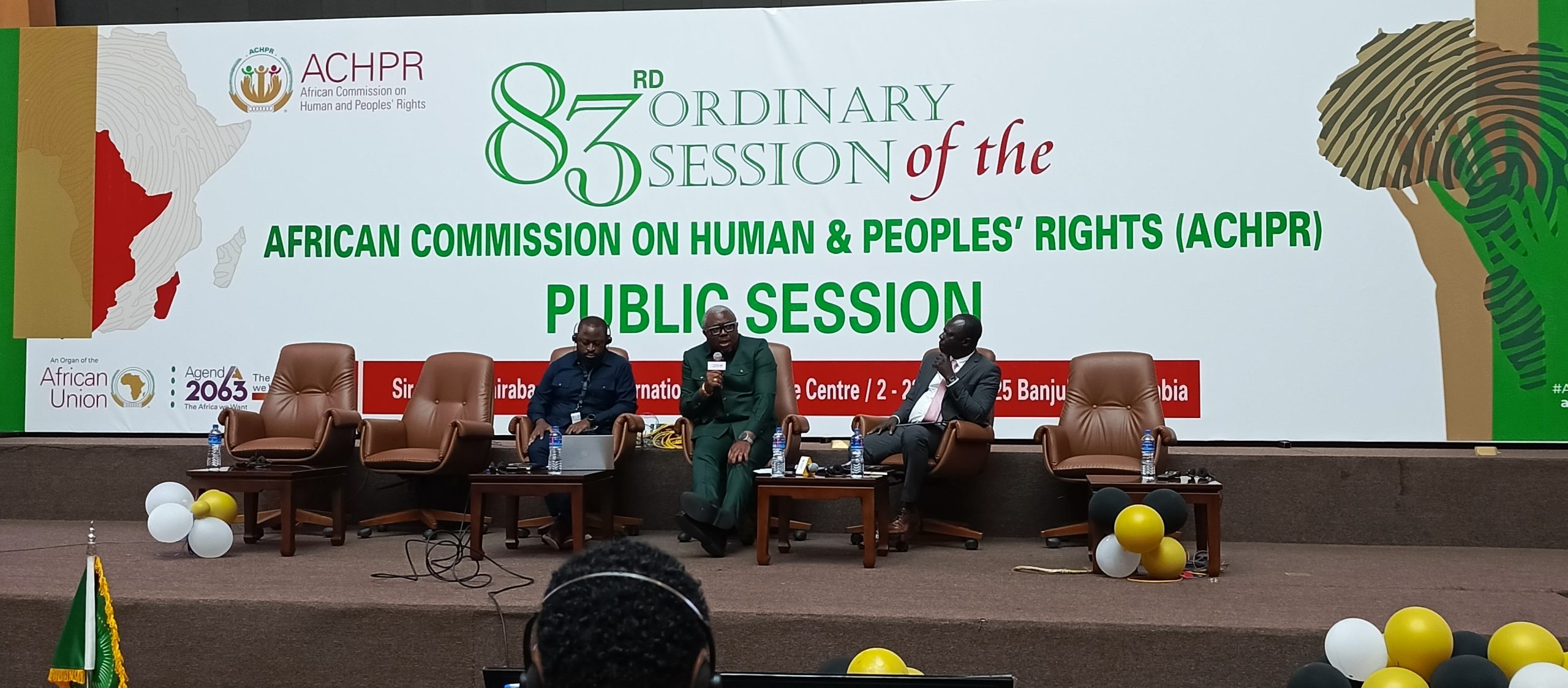The theme of the second joint forum held during the public ordinary session of the ACHPR was ‘Human rights as an imperative for people-centred sustainable development in Africa’. Commissioners, Special Rapporteurs, States representatives, national human rights institutions (NHRI), civil society organisations (CSO), human rights and development experts, academics, law practitioners, representatives of international and regional human rights bodies and others discussed topics like economic investment, health, justice, protection of vulnerable groups and civic space as interdependent with human rights for the realisation of sustainable development. Hence, during ten panel-discussions, panellists called for the consideration of human rights in the development processes.
During the panel on ‘freedom of association, assembly, expression and access to information as enablers of human and sustainable development, Geereesha Topsy Sonoo, ACHPR’s Special Rapporteur on Freedom of Expression and Access to Information quoted James Wolfensohn:
If you cannot enfranchise poor people, if they do not have a right to expression, if there is no searchlight on corruption and inequitable practices, you cannot build the public consensus needed to bring about change.
James Wolfenson in 'Voices for the poor', The Washington Post, 10 November 1999.
Geereesha Topsy Sonoo further recalled that:
Additionally recalling the indivisible relation between development and human rights as mentioned in the Preamble of the African Charter on Human and Peoples’ Rights, she called for the respect of these fundamental rights in the broad sustainable development processes.
Bearing in mind the African Union’s 2025 theme ‘Justice for Africans and People of African Descent Through Reparations’, former UN’s Special Rapporteur on freedom of peaceful assembly and of association Clement Voule stated that freedom of association and assembly are some of the fundamental rights which allowed Africans to initiate movements toward their liberation from colonialism and apartheid. He added that:
Freedom of association, assembly, expression and access to information are rights that are at the foundation of any democratic, inclusive and peaceful society. (…) They allow civil society organisations and other public persons to become agents of their own development.
Clement Voule, former UN’s Special Rapporteur on freedom of peaceful assembly and of association
Andrew Songa, member of this panel, also expressed the widely-shared view that development and participation rights are interdependent and indivisible. He agreed that human rights cannot be separated from sustainable development under any circumstances.
To conclude those two days, Rémy Ngoy Lumbu, ACHPR’s Special Rapporteur on human rights defenders and focal points on reprisals, recognised that human rights defenders are also agents of development; consequently, their involvement or the consideration of human rights-based approaches in the achievement of sustainable development is not optional. It is a fundamental condition for any State knowing that:
A country where freedom of expression, association and assembly are restricted, is a country that is not democratically viable (…).
Rémy Ngoy Lumbu, ACHPR’s Special Rapporteur on human rights defenders and focal points on reprisals
Author
Adélaïde Etong Kame
Adélaïde has a Master in International Law and Relations from the University of Clermont-Ferrand. Adélaïde worked with indigenous people and minorities in Mauritania for better protection of their rights, especially victims of slavery. Previously, she advocated for the rights of women in Poland and Macedonia as well as the advancement of freedom of expression in Central Africa.
Article also available in




